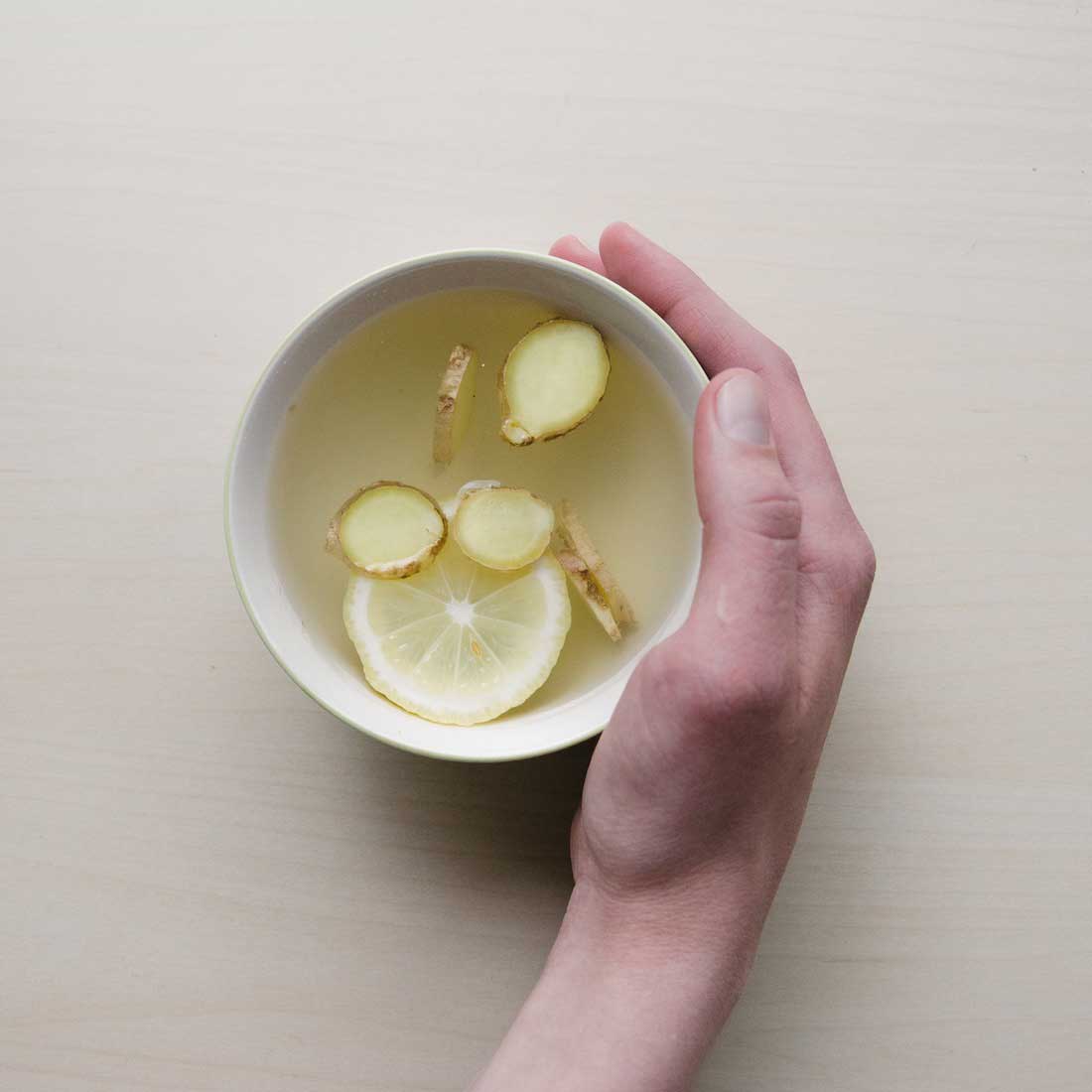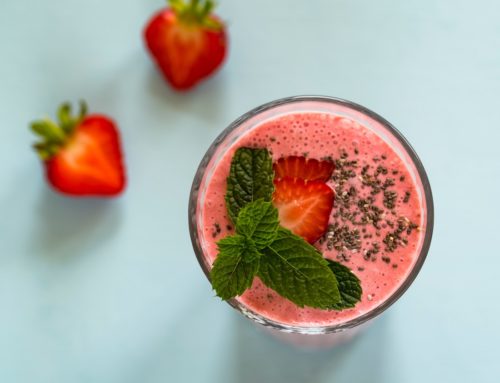Here’s something that Americans have forgotten: you can eat your medicine and enjoy it too. In fact, the Chinese and South Asians have been doing just that for thousands of years. Try some ginger tea.
Think about steamed fish, curries, or stir-fries. Here’s what those dishes have in common: ginger is in all of them. From as early as 2000BC, the Chinese knew about and recorded the medicinal properties of ginger. One thing we can learn from the Chinese diet is adding nutrient-rich foods to our diets. Fresh ginger tea is an easy way to start.
How to Make Fresh Ginger Tea
Take some fresh ginger, slice it in strips, and let it steep in a cup of hot water. Add a dash of honey or maple syrup and enjoy.
Ginger Tea Variations
If you feel adventurous, try out these flavour combinations:
- ginger, honey, tea, black pepper
- turmeric, ginger, lemon, and honey
- milk, ginger, and honey
- turmeric, milk, honey, and ginger
- coriander, cardamom, lime, ginger, basil, and honey
- ginger, chamomile, fennel seeds, and honey
The Benefits of Fresh Ginger Tea
Ginger is a powerful anti-inflammatory1. China and India have used ginger for thousands of years as medicine. In fact, ginger is being studied extensively for its effect on many different types of pain and even arthritis. Here are just a few of ginger’s health benefits:
1. Fight inflammation
Ginger is a power anti-inflammatory. This is one of the most important reasons why I recommend adding ginger to your diet.
Here’s some background on inflammation. It’ll help explain why ginger is important.
We need acute inflammation for many healing responses in the body. Acute inflammation is a normal response to injuries. Here’s the but: chronic inflammation isn’t normal. That’s the type of inflammation that a lot of us suffer from. Chronic inflammation is responsible for many damaging effects of common diseases.
You can have chronic inflammation because of many reasons. Not enough sleep, a poor diet, not enough exercise, and too much sun exposure, are a couple of examples. Generally, the better you eat and the healthier your lifestyle is, the less inflammation you will have.
The best way to reduce inflammation is to eat well. Certain foods are anti-inflammatory. That means they either fight the substances produced during inflammation or prevent inflammation from happening in the first place. Ginger is a powerful anti-inflammatory. In fact, reducing inflammation is actually one of the traditional uses of ginger. In Western research, we’ve found evidence that backs that traditional diagnosis. We now know that ginger inhibits the enzyme COX22, a substance that increases inflammation.
2. Reduce the risk of heart attacks
Some research tells us that ginger may reduce blood pressure. There is some evidence that ginger lowers cholesterol3 and prevents blood clotting. Both reduce your risk of heart attacks and strokes. There’s enough evidence that I recommend you add ginger to your diet. It will likely help.
Chew on this
There are lots more ways to add ginger to your diet. How about some steamed fish with ginger for lunch, curry in the evening, and stir fry with ginger for the next day? Changing your diet and lifestyle is the most powerful step you can take to improve your health.
On the internet, bloggers sometimes exaggerate the health benefits of foods. This happens often with ginger. Here’s a fact check: ginger isn’t a silver bullet for any chronic disease. Here’s what will help: eating ginger along with other good foods and having a healthy lifestyle. Research has proven that your diet and lifestyle have a significant impact on your health.
What do you think of ginger tea? Do you like it? Share with us in the comments!




